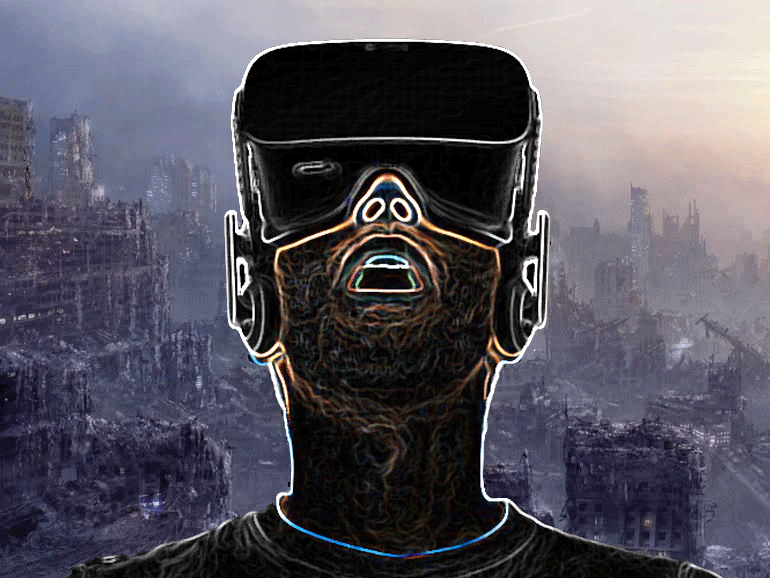We must face up to the potential dangers of widespread virtual reality technology before it's too late.

While no legitimately new products were truly shown at the the 2016 Consumer Electronics Show in Las Vegas last week, the event distinguished itself primarily with executives of various firms asserting their role in how their respective companies are innovating.
Innovation is very important, but I also think it can be overrated, if nothing tangible gets productized as a result of the effort put in. In many cases, maturity -- not innovation -- is what makes products real.
In the case of Virtual Reality (VR) the industry is now reaching a point where we can almost grasp maturity. We can see it coming; it is inevitable.
Your average consumer may not be able to afford it for perhaps five or ten years, with current prices at $600 per headset not counting supporting equipment (such as a powerful GPU-intensive PC or gaming console) but the writing is on the wall.
VR gaming will be a legitimate form of entertainment, at least among middle class people, before the decade is over.
We need to ask ourselves about what the potential societal implications of widespread VR technology are now, before it actually becomes a cultural phenomenon -- just as we deal with the impact of smartphones, tablets and other mobile devices on our culture today.
Modern smartphones have been on the market for almost a decade, but we have only started to understand their impact on human behavior.
Due to the proliferation of inexpensive mobile devices, Internet/technology addiction among Generation Y and earlier is an increasingly real problem, and we're in danger of it becoming an epidemic and a real life-destroying issue in first world countries.VR and its sister technology, Augmented Reality (such as used on Google Glass and Microsoft Hololens) are not evil technologies. They have their uses, particularly in vertical market applications.
Medicine, aerospace, engineering, manufacturing and military are just a sample of industries where these technologies are not only relevant but can make substantive impact for the good.
However, I am having difficulty imagining beyond the pure novelty of the technology where there is a net benefit to using it for entertainment purposes.I admit to being interested in owning one of these devices, to use with my XBOX One.
I can definitely see where developers could design the sort of first person perspective game that was so immersive that it would provide an experience that was so much better than the kind of games we play now, with much more natural and intuitive UIs, particularly when combined with motion sensing and motion capture technology such as used with the Kinect sensor.
I would probably even use my XBOX One for gaming more than I do now if I had such a headset. At best I currently use it for this purpose only a few hours a month, and I am more drawn to simpler experiences (such as auto racing) than to complex FPS games like Halo 5.
Why? First-person video games have controls that are too complex. Unless you grew up with these consoles or are are a compulsive adult gamer that's likely to be the case with most people.
VR, if successfully implemented, is likely to solve that problem.
But I know that I have an addictive personality. So it is probably not a good idea for me to own an Oculus Rift or similar device.
 Latest News
Latest News- ▪ 出境主题游与医疗旅游峰会暨展览2020顺利
- ▪ 5th Global Retailing e-Commerce Confer
- ▪ 首届全球金融科技与区块链中国峰会2017落
- ▪ 第二届全球VR/AR中国峰会2017完美落幕
- ▪ Inaugural Global Fintech & Blockchain
- ▪ Exclusive E-Commerce High-Level Delega
- ▪ 2nd Global VR/AR China Summit 2017
- ▪ 第七届中国跨境电商峰会暨展览
- ▪ Sino-Turkish e-commerce site open
- ▪ China's manufacturing sector to see hi
- ▪ Baofeng reveals three acquisitions as






















































































































